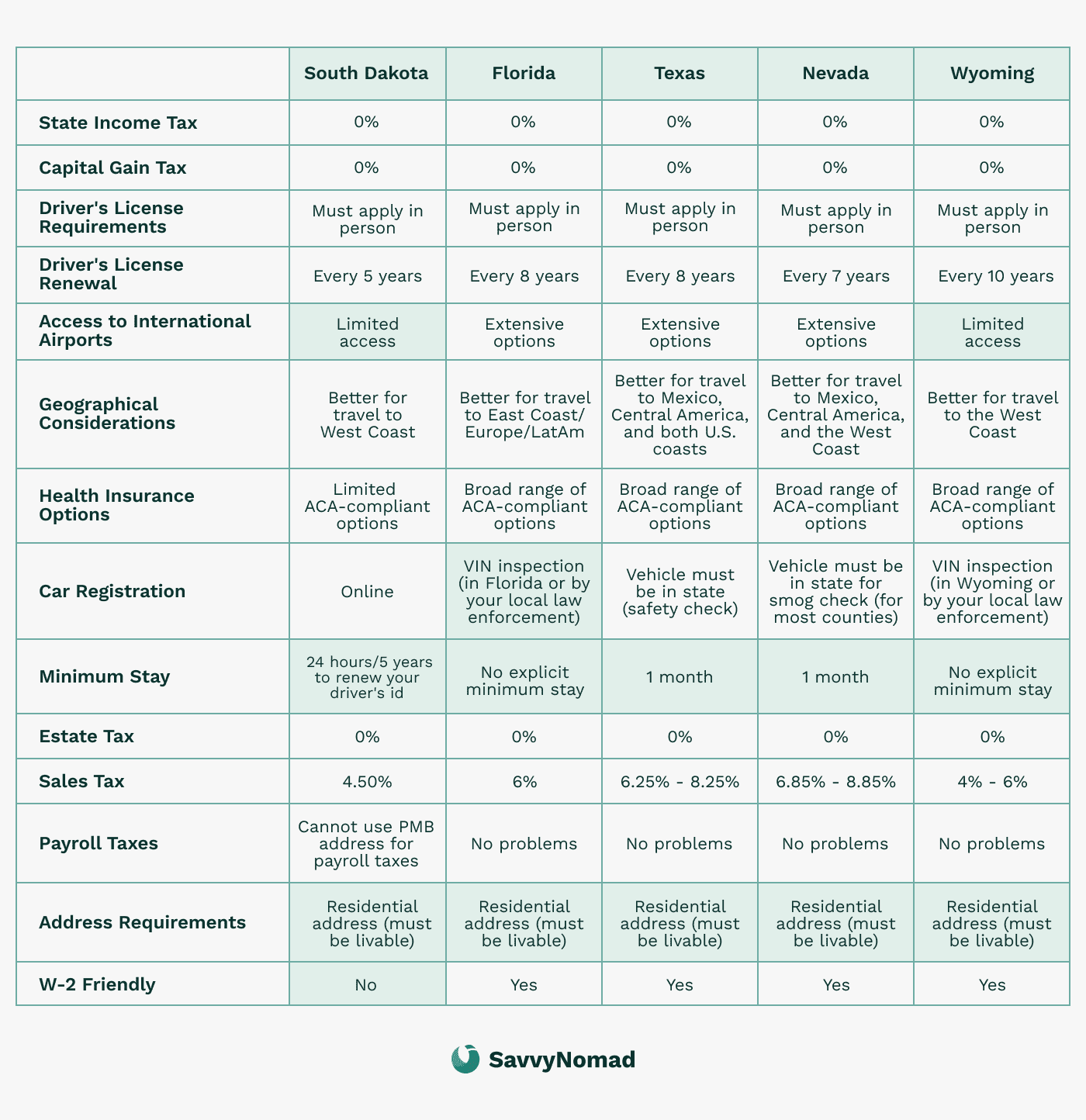How to leave North Carolina residency?

Leaving North Carolina residency can be a smart financial move, especially if you’re relocating for lower taxes, a new job, or just a change in lifestyle. North Carolina, like many states, taxes its residents on their worldwide income, which can add up depending on your income and where you’re moving. States like Florida and Texas, which have no state income tax, are popular options for people looking to save on taxes.
But moving out of North Carolina isn’t just about physically relocating. You’ll also need to take steps to officially sever your ties with the state so that you aren’t taxed as a resident anymore.
Whether you’re moving for work, retirement, or just a new adventure, following these steps will help make your transition smoother and ensure you won’t have to worry about unwanted taxes from North Carolina.
Step 1: Establish a new domicile
The first and most important step in leaving North Carolina residency is to establish your new home in another state. This process involves more than just moving—it’s about making it clear that your new state is now your permanent residence.
Here’s how to do it:
1) Establish new residency
- Secure a residential address: Find a place to live in your new state, whether it’s through renting or buying a home. Many states, like Florida, offer tax benefits such as the homestead exemption, which could help lower your property taxes. Setting up a permanent residence in your new state is essential to proving that you’ve left North Carolina.
- File a Declaration of Domicile: Some states, like Florida, allow you to file an official document called a Declaration of Domicile to prove that you intend to make this new state your permanent home. This is especially helpful if you’re moving from a state with significant tax obligations, like North Carolina.
Residency guides:

2) Relocate your belongings
Move your personal belongings to your new home in the state. This helps show that your move is permanent, as you are transferring your life to a new location.
3) Spend time in your new state
Spending significant time in your new state will make it clear that you’ve established a permanent home. Avoid spending too much time in North Carolina after your move, as that could complicate your residency status for tax purposes.
4) Transfer IDs and vehicle registrations
Be sure to transfer your driver’s license and vehicle registration to your new state as soon as possible. This is a clear sign that your life is now centered in your new state, not in North Carolina.
5) Register to vote
Registering to vote is a key indicator of residency. Make sure to cancel your voter registration in North Carolina and register in your new state. This step helps solidify your claim to your new domicile.
6) Update financial accounts
Make sure your bank accounts, credit card statements, and other financial documents reflect your new address. Keeping these records up to date will show that your finances are now based in your new state, not in North Carolina.
7) Notify your employer
Make sure your employer updates your payroll and tax withholdings to reflect your new state. This ensures that North Carolina no longer withholds state income taxes from your paycheck.

Step 2: Sever ties with North Carolina
After establishing your new domicile, the next important step is to officially cut your ties with North Carolina. This ensures the state no longer considers you a resident for tax purposes.
Here’s how you can do that:
1) Close North Carolina financial ties
- Close local bank accounts: If you have North Carolina-based bank accounts, consider closing them and transferring your funds to banks in your new state. This demonstrates that your financial life is now rooted in your new home.
- Cancel North Carolina voter registration: Make sure you cancel your voter registration in North Carolina and register to vote in your new state. Voting records are often used to determine residency.
- Update personal records: Update your address with the IRS, Social Security, and any other relevant entities. Keeping all personal and financial records in your new state helps solidify your move.
2) Sell or lease property
If you own a home or other property in North Carolina, selling it is one of the clearest signals that you no longer reside in the state. If you choose to lease your property instead, consider a long-term lease to demonstrate that you don’t maintain a residence in North Carolina.
3) Cancel local subscriptions/services
Cancel any memberships, utilities, or subscriptions you have in North Carolina, like gym memberships or utility bills. Maintaining these services could signal that you still have ties to the state.
4) Transfer healthcare and insurance
Update your healthcare providers and insurance policies to reflect your new residency. This is another sign that you have fully moved and don’t rely on North Carolina services.

Step 3: Time spent outside North Carolina
To ensure North Carolina no longer considers you a resident for tax purposes, it’s important to limit the amount of time you spend in the state. North Carolina, like many states, uses the 183-day rule to determine residency, so you need to be mindful of how many days you spend in the state each year.
183-day rule
What is the 183-day rule?: If you spend 183 days or more in North Carolina in a calendar year, you may be considered a resident for tax purposes, even if you’ve moved to another state. This means you could be liable for state income taxes.
Stay under 183 days: To avoid being classified as a resident, ensure you spend fewer than 183 days in North Carolina each year. This rule applies regardless of where your primary residence is.
How it works: A day counts as a full day in North Carolina if you’re present in the state for any part of it. So, even if you only spend a few hours in North Carolina before traveling to another state, that day still counts.
Keep detailed travel records
Why it’s important: If your residency status is ever questioned, having detailed records of your time spent in and out of North Carolina will be essential for proving that you’ve stayed under the 183-day limit.
In case of an audit: If North Carolina ever questions your residency, these records will help prove that you stayed under the 183-day limit. Accurate records are key to avoiding disputes with the state tax authorities.
By keeping careful records and ensuring that you stay under the 183-day limit, you can avoid being classified as a North Carolina resident and minimize your tax obligations in the state.
Step 4: North Carolina-sourced income
Even after leaving North Carolina residency, you may still be required to file taxes on income earned within the state. Here’s how to handle any ongoing tax obligations related to North Carolina-sourced income:
1) Ongoing tax responsibilities
If you continue to earn income from North Carolina, such as rental income, business profits, or wages, you’ll need to file a non-resident North Carolina tax return. This ensures you only pay taxes on the income sourced from North Carolina, while your income from other states remains separate.
2) Rental or business income
If you own rental property or a business in North Carolina, any income generated from those sources will still be subject to North Carolina state taxes. It’s important to consult with a tax professional to ensure compliance with North Carolina tax laws, especially if you have complex income streams that tie back to the state.





